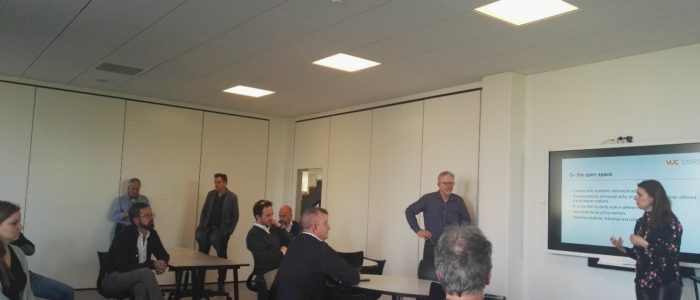Sixth short-term joint staff training event of the project ERASMUS NO NEET in Denmark
On April 3rd, 4th and 5th VUC Storstrøm, partner of the project ERASMUS + New Opportunities for the Not Employment, Education or Training (NO NEET) welcomed the other project partners and organised the sixth learning visit on experiences focused on acting with vulnerable young people who neither study nor work, also known as NEET’s collective.
Throughout those three days notus and the other project partners had the opportunity to learn their working methods in adult education, the innovations that they are developing in the field of teaching such as learning through virtual reality or the activation of young people through a game that guides them to obtain the learning and skills they need for the work they want. It was also very interesting to be able to visit their new facilities in Næstved. A new building that has been designed in collaboration with the VUC staff to apply their active learning method where IT are very present.
In addition to learning more about the innovative methods that VUC applies and develops, they also presented two interesting practises: Life and Learning and Dyslexia courses. The first practise focuses on young people who have a low level of education due to different reasons (drug problems, ex-criminals, mental problems, broken families …). With these young people there is a very tailormade and personalised orientation and teaching that helps them to set goals and reach them at their own pace. The second practise focuses on young people and adults with dyslexia. In Denmark there is a test, developed by the Ministry of Education, which makes it possible to identify whether people have dyslexia, have learning problems in some area (reading, writing, speaking …) or do not have dyslexia. From the identification, the person is accompanied and guided through the realization of specific courses oriented to their needs. In these courses, different technological instruments are used to help people learn (different apps, specific software, hand scanners, audiobooks …) both in class and outside it.


Comments are closed.